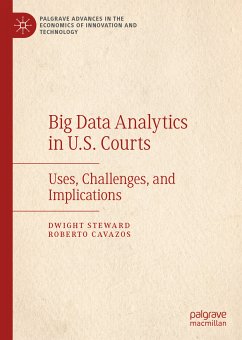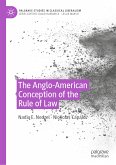This Palgrave Pivot identifies the key legal, economic, and policy issues surrounding the allowance to use and interpret electronic data consistently and in a scientifically valid manner in U.S. courts. Evidence based on the analysis of large amounts of electronic data ("Big Data") plays an increasing role in civil court disputes, providing information that could not have been obtained from a witness stand. While Big Data evidence presents opportunities, it also presents legal and public policy challenges and concerns. How can one be sure that deviations found in Big Data fall outside the norm? If statistical analyses can be conducted and presented different ways, how can judges and juries make sense of conflicting interpretations? When does Big Data extraction stop being investigative and instead become an invasion of privacy? This book traces the history of Big Data use in U.S. courts, couples current case studies with legal challenges to explore key controversies, and suggests how courts can change the way they handle Big Data to ensure that findings are statistically significant and scientifically sound.
Dieser Download kann aus rechtlichen Gründen nur mit Rechnungsadresse in A, B, BG, CY, CZ, D, DK, EW, E, FIN, F, GR, HR, H, IRL, I, LT, L, LR, M, NL, PL, P, R, S, SLO, SK ausgeliefert werden.








